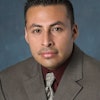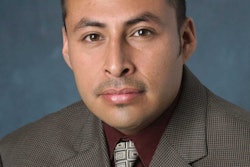University of Idaho law professor Angelique EagleWoman first became interested in the law after her African-American uncle was assaulted by a group of deputies and subsequently awarded $75,000 in punitive damages.
"I was 8 years old at the time, and watching the news coverage of the judgment in his favor," recalls EagleWoman, "I felt that justice had been served and that law was a powerful tool for righting wrongs."
Three decades later EagleWoman (Sisseton-Wahpeton Oyate) is now the force behind the new Native American law program at the University of Idaho that will provide lawyers with comprehensive training to address a series of unmet legal needs in the tribal communities.
"Tribal governmental legal offices are often understaffed and relied upon to address diverse areas from water adjudication to protection of treaty hunting rights to strengthening the tribal offenses code to advising the tribal government on economic development plans," she says.
Those same offices are also expected to represent tribal members in such areas as family law, criminal defense and personal injury action.
But perhaps the greatest and most complex need has been trying to figure out what Washington wants. "The policies of the U.S. government have been called schizophrenic due to the swinging between opposite poles of supporting tribal government and seeking to terminate tribal government," says EagleWoman.
As a result EagleWoman has focused on efforts to bring more coherence to tribal policy, particularly as it pertains to economic development issues, and remains hopeful that such efforts will eventually bring results. "I think that over time loosening the federal hand of government agency oversight on reservations will lead to freeing up tribal lawmakers to create sturdy corporations and economic ventures to benefit the same region they are located in," she says.




















